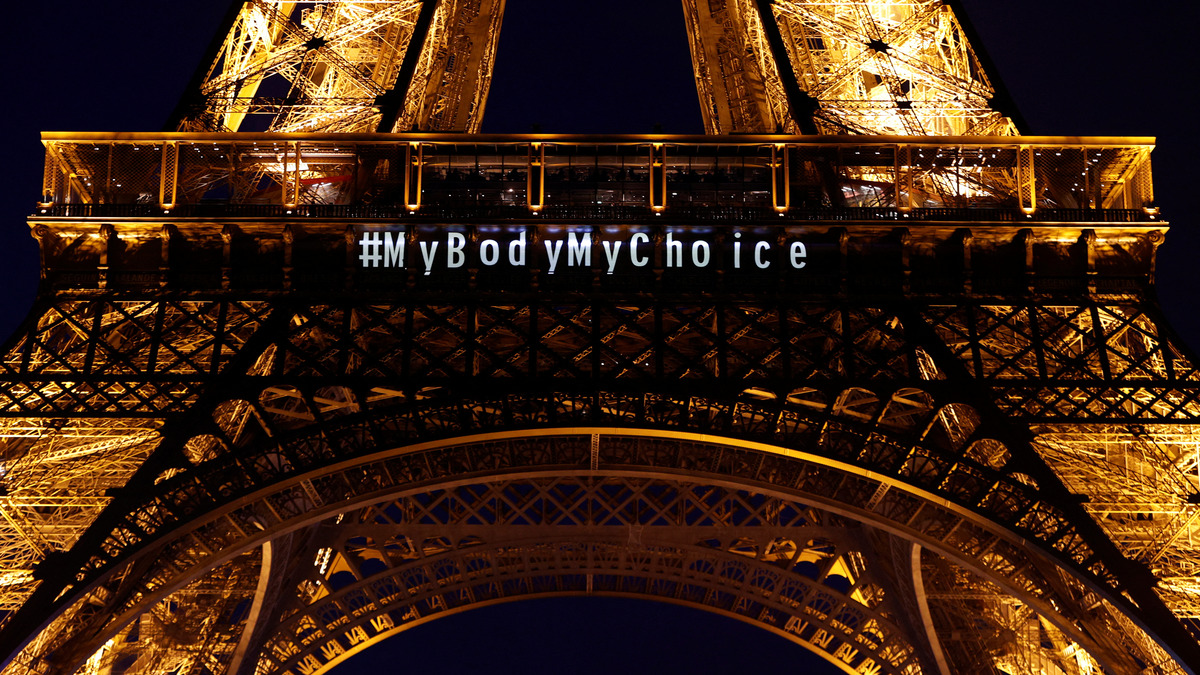France has scripted history by becoming the first country to include the right to abortion in its Constitution. French lawmakers convened a joint session of Parliament at the Palace of Versailles on Monday (4 March) to amend the 1958 Constitution to enshrine women’s “guaranteed freedom” to abort.
The bill was passed in an overwhelming 780 votes against 72, resulting in a long-standing ovation in the Parliament. This comes after the French Senate voted on 28 February to guarantee access to terminate a pregnancy in its basic law.
Let’s take a closer look.
Abortion becomes a right in France
Abortion has been legal in France since 1975. The law has since been updated nine times, with the aim of extending access, reported BBC. Currently, France allows abortion till 14 weeks of pregnancy.
In November 2022, the National Assembly – the lower house of the French Parliament – approved a bill proposed by the left-wing La France Insoumise (LFI) party to enshrine abortion in the country’s Constitution.
This Monday, France finally did that.
Ahead of the vote, French prime minister Gabriel Attal told Parliament that the right to abortion remained “in danger” and “at the mercy of decision-makers”.
“We’re sending a message to all women: your body belongs to you and no one can decide for you,” he added.
The public in France strongly favours abortion rights, with a 2022 poll by French polling firm IFOP showing 86 per cent of citizens back the inclusion of abortion rights in the constitution, reported DW.
Impact Shorts
More ShortsAs the bill was passed, celebratory scenes emerged across the country. The Eiffel Tower in Paris was lit up and displayed the message: “My Body My Choice”.
President Emmanuel Macron called the move “French pride” that had sent a “universal message”.
“France is at the forefront,” Yael Braun-Pivet, the head of the National Assembly, said as she opened the joint meeting.
“I’m proud of this Congress, which will say that the right to get an abortion will now be part of our basic law,” she was quoted as saying by Al Jazeera.
Why was this needed?
France’s bill was prompted following the US Supreme Court’s 2022 decision to repeal the right to abortion.
“This right (to abortion) has retreated in the United States. And so nothing authorised us to think that France was exempt from this risk,” Laura Slimani, from the Fondation des Femmes rights group, said, as per Reuters.
“There’s a lot of emotion, as a feminist activist, also as a woman,” she added.
However, France’s move has been opposed by anti-abortion groups, the Vatican and some far-right politicians who say the bill was not needed.
Far-right leader Marine Le Pen accused Macron of using the legislation to score political points.
“We will vote to include it in the Constitution because we have no problem with that,” she told reporters before the vote. But Le Pen said to call it a historic step was an exaggeration as “no one is putting the right to abortion at risk in France”.
Where do countries stand on abortion?
After the US Supreme Court in 2022 reversed the Roe v Wade ruling that guaranteed women’s abortion rights, several states in the country either completely banned or highly restricted access to end a pregnancy.
In India , the Medical Termination of Pregnancy (MTP) Amendment Act, 2021 allows abortion up to 24 weeks of gestation. In case the pregnancy is over 24 weeks, the opinion of a state-level medical board is sought to abort if foetal abnormalities are suspected. In September 2022, the Supreme Court extended abortion rights to unmarried women in a landmark judgement.
Abortion is broadly legal across Europe, with access to the procedure in over 40 nations, as per Associated Press (AP).
The United Kingdom allows up to 24 weeks of pregnancy if two doctors approve. After 24 weeks, women are permitted under some circumstances such as danger to the mother’s life. However, England and Wales punish women who have abortions after 24 weeks.
Women can end pregnancies in Italy upon request in the first 12 weeks, or later if there are health or life threats, as per AP.
In mainly Catholic nations like Spain, Malta, and Hungary, women’s access to safe abortion is limited as many medical practitioners deny them the procedure on moral or religious grounds, DW reported.
While abortion is legal in Russia, authorities are trying to restrict access as President Vladimir Putin pushes “traditional values” to boost the population.
Poland bans abortions, with only exceptions in cases of rape, incest, or threats to the mother’s life. In 2020, abortions due to foetal defects were also outlawed in the country.
China legalises abortions, which are widely accepted in the nation.
Abortion is legal in Hungary for up to 12 weeks of pregnancy but those seeking the procedure have to listen to the foetal heartbeat beforehand. Counseling is also mandatory.
Mexico liberalised its abortion laws after its Supreme Court in 2021 recognised a constitutional right to “legal, safe, and free” abortion early in pregnancy.
With inputs from agencies


)

)
)
)
)
)
)
)
)



